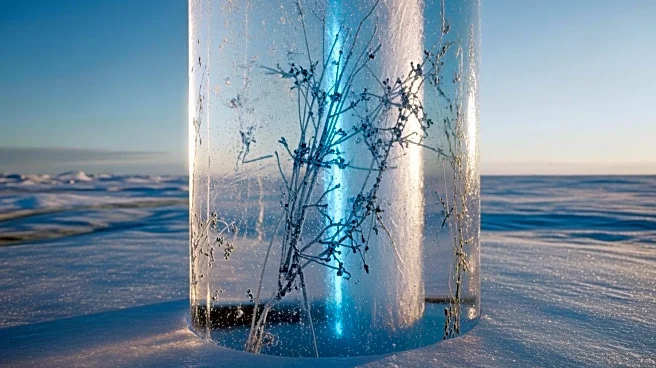What's Happening?
Researchers have successfully revived ancient microbes that were dormant in the Alaskan permafrost for approximately 40,000 years. These microbes, once awakened, begin consuming organic matter and produce greenhouse gases such as carbon dioxide and methane,
which contribute to global warming. The study involved samples taken from the Army Corps of Engineers’ Permafrost Tunnel Research Facility in Alaska, where the microbes were exposed to conditions mimicking warmer Alaskan summers. The findings indicate that longer, hotter summers pose a greater risk of reawakening these microbes, rather than brief hot spells.
Why It's Important?
The revival of these ancient microbes could have significant implications for climate change. As these organisms produce greenhouse gases, they could accelerate the warming of the planet, creating a feedback loop that exacerbates global temperature rise. This development highlights the potential dangers of thawing permafrost, which could release vast amounts of trapped carbon into the atmosphere. The study underscores the need for further research into the impact of climate change on permafrost ecosystems and the potential consequences for global climate patterns.















